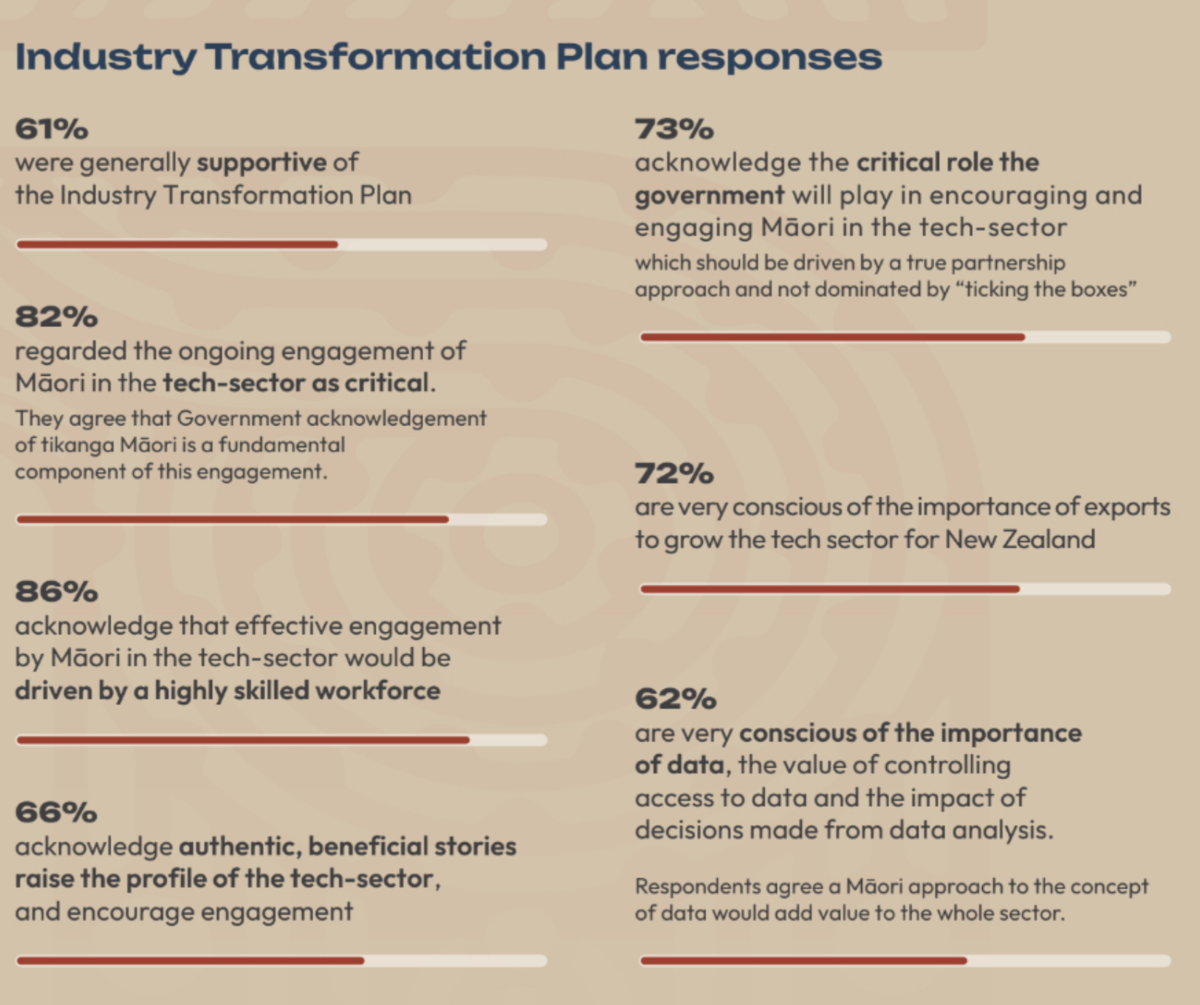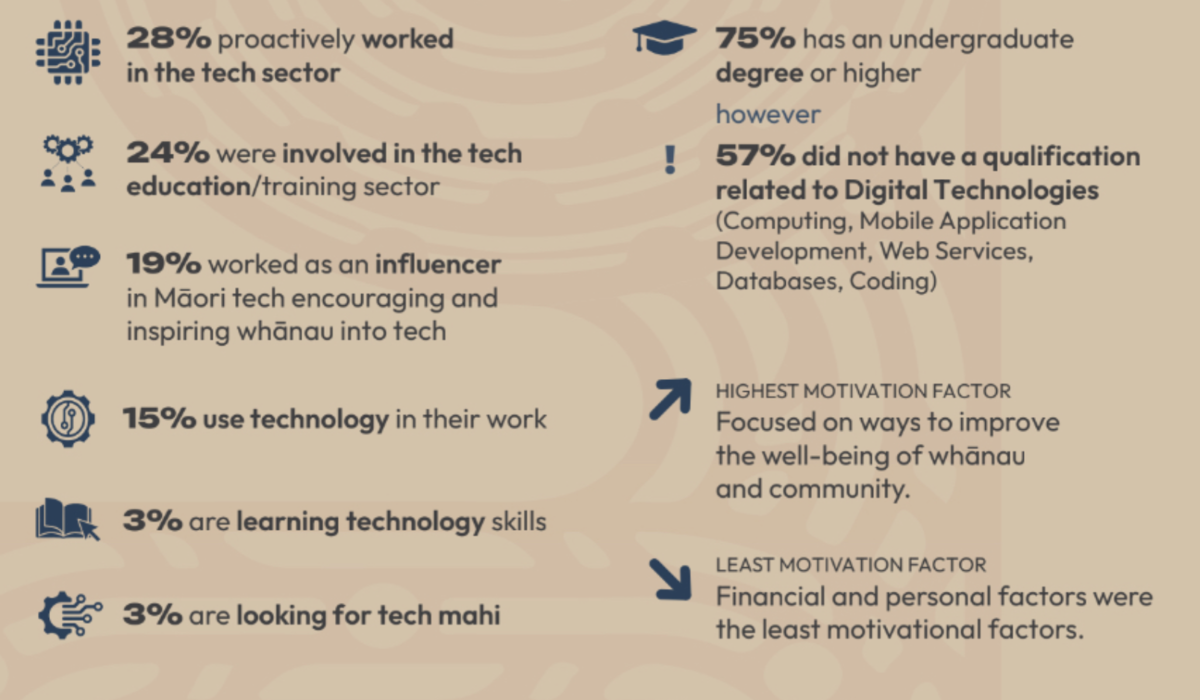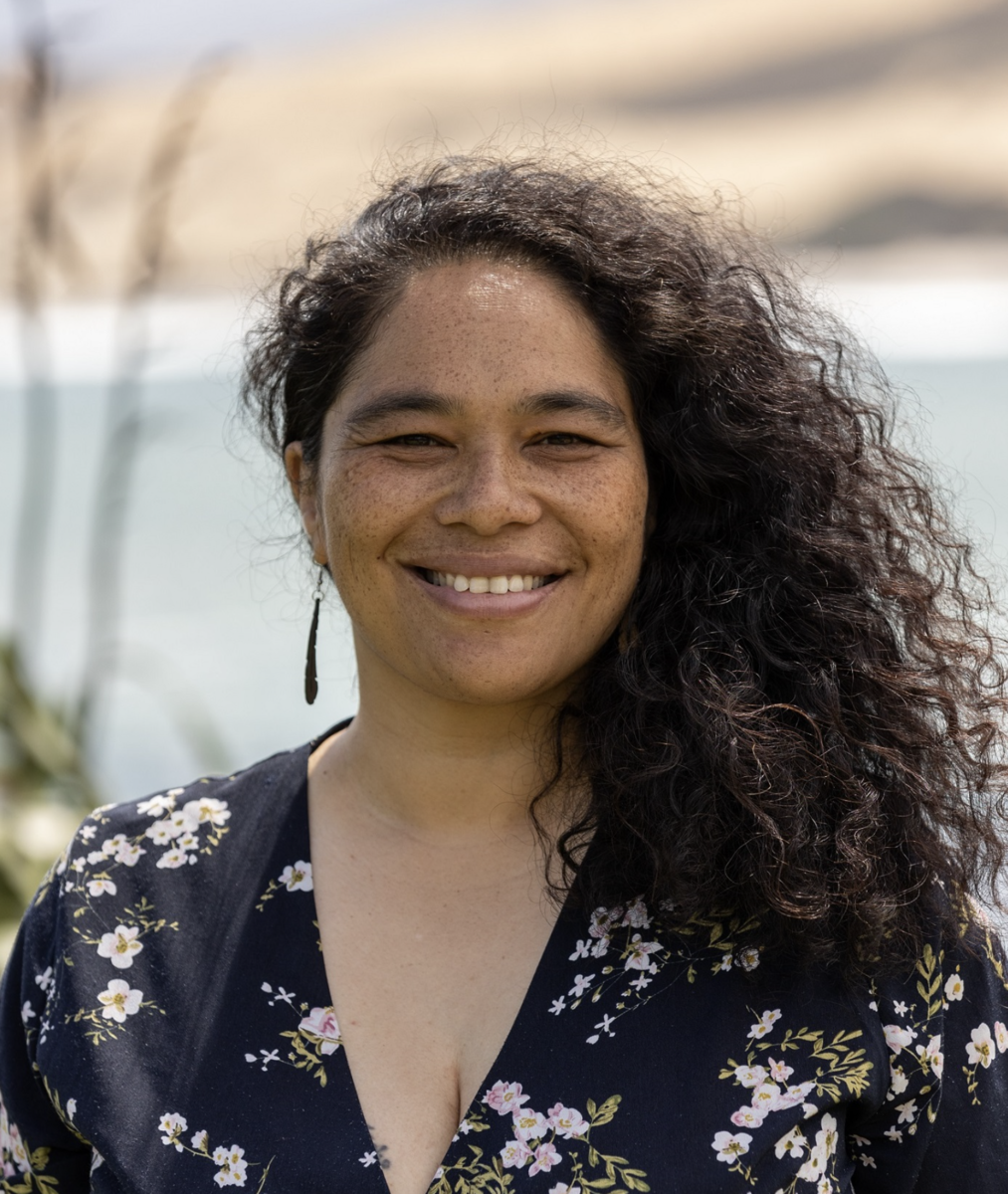Digital divide, data sovereignty, skills development - priorities for Māori tech sector
Māori should be more than “token add-ons”, but instead intentionally sought as partners, co-designers, and contributors to New Zealand’s tech sector, a new report canvassing views from Māori in tech has found.
The Mapping the Māori Tech Sector project developed by consultancy firm Making Everything achievable, in partnership with the Ministry of Business, Innovation and
Employment, Te Whare Wānanga o Awanuiārangi and NZTech, found that 61% of respondents were generally supportive of the Government’s Digital Industry Transformation Plan, with 73% acknowledging the role the Government will play in encouraging Māori in the tech sector.
The report included consultation with 30 Māori tech practitioners, including Lee Timutimu, the CEO & Founder of Arataki Systems, Dr Warren Williams, CEO of the 20/20 Trust, Dr Karaitiana Taiuru, technology ethicist and AI expert, and Kevin Shedlock, assistant lecturer at Te Herenga Waka - Victoria University.

Survey views on the Government's Digital Industry Transformation Plan
While the report found much to celebrate in the fledgling Māori tech sector, it also highlights key areas that need work, including building tribal governance awareness and capability to greater understand technology innovation, the development of Māori-focused tech sector strategies and supporting rangatahi Māori within the tech sector through the provision of scholarships.
The report found that the highest motivational factor for individuals involved in the tech sector was their focus to improve the overall well-being of whānau and community. But major challenges to achieving that remain.

Views in the report from the 84 survey respondents
“As the demand for more skilled workers increase, there are still significant digital disparities that exist between Māori and non-Māori, including equitable access to reliable and affordable internet and telecommunication services, access to digital devices and pathways into high quality and relevant STEM education for whānau, children and young people within Kōhanga Reo, Early Childhood centres through to Māori immersion, Whare Kura, Kura Kaupapa, Kura ā Iwi and mainstream schools,” the report notes.
“These disparities are no longer acceptable!” it adds.
Work needed to be done when it came to Māori data sovereignty.
“The pace of development is operating at light speed, technology and data are increasingly becoming weaponized whilst the calls from indigenous nations for governments and corporate entities to operate as responsible stewards continue to fall on deaf ears,” the report found.
 Kaye-Maree Dunn, director of MEA says the report showcases the views of tangata whenua in the tech sector.
Kaye-Maree Dunn, director of MEA says the report showcases the views of tangata whenua in the tech sector.
“Our hope is that the voices and stories shared here will contribute to our Government’s understanding of the overall well-being and vibrancy of the sector.”
Mapping the Māori Tech Sector also gives insights into the Māori of technology and the tech ecosystem.
“Technology, recreation and work are inseparable, interwoven, and interdependent. Harnessing technology can increase productivity, health, community wellbeing, and individual wealth,” the report points out.
“Māori have a rich and well documented history of acquiring, adapting, and adopting technologies to meet their specific needs. They do this without losing sight of what they hold dear, who they are, where they come from and how they will face the future.”
Mapping the Māori Tech Sector recommendations include:
- A Government Māori Chief Data and Digital Steward position is created and appointed to work as an equal alongside the Government Chief Data Steward.
- MBIE create a Te Tiriti-centric Māori Tech Digital unitthatis tasked with implementing the key findings ofthis report and a Kaupapa Māori Research team within that unitfor allfuture Māori tech research.
- All Crown-funded tech boards must have a Te Tiriti clause that recognises co-governance and has seats for Māori tech representatives that are equal to the Māori population percentage.
- Develop anAll-of-Government stocktake of all Māoritech initiatives and create a Māori Tech Strategy that recognises the disparities facing Māori in tech and fulfil the Crown’s obligations to Māori.
- Any future lead tech research must be co-designed with Māori and uses Kaupapa Māori research methodologies.
- Provide investment in apprenticeships that support Māori into the tech sector.
- All future government tech contracts and partnerships to include an enforceable and monitored Te Tiriti clause giving Māori rights to employment, training, governance and Data Sovereignty.
- Create a new constable Māori Tech fund to encourage research and implementation of emerging technologies to benefit climate change and economic growth.
- Review all Government funded tech education programmes and ensure that Mātauranga Māori is embedded throughout the programme.
The report builds on Toi Hangarau, published earlier in the year, and the first deep-dive study looking at the Māori-led start-up ecosystem.
